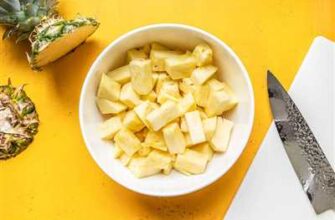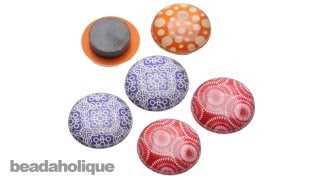
If you find yourself fascinated by DIY projects and interested in improving your health, making essential oils at home might be the perfect activity for you. Eucalyptus oil, in particular, is a popular and versatile essential oil that has many health benefits. It is known for its refreshing aroma and various therapeutic properties, such as relieving respiratory issues and promoting mental clarity.
While there are many eucalyptus oil products available for purchase, making your own can be a rewarding and cost-effective option. Additionally, creating your own essential oils allows you to have complete control over the ingredients, ensuring that you are using the purest and highest quality eucalyptus oil possible.
Although there are several different methods for extracting eucalyptus oil, one commonly used method involves crushing eucalyptus leaves and then distilling the oil through a process known as steam distillation. This method is widely recognized and has been filed as a patent with the publication number CN106318643A. However, if you are skeptical about the complexity and legal status of this method, do not fret. There are simpler ways to make eucalyptus oil right in your own home.
A quick Google search will show you many different methods for making eucalyptus oil at home. Some of these methods include using a linen spray, soaking eucalyptus leaves in oil, or even using a cold-pressed method. While these methods may work to some extent, they may not yield the same concentration or quality of oil as the steam distillation method.
It is important to note that extracting essential oils requires a significant amount of plant material. Eucalyptus leaves are no exception. Therefore, if you decide to make your own eucalyptus oil, be prepared to gather and process a large amount of leaves. Additionally, there are various sources you can consult for guidance on the amount of leaves you will need to use, as well as their medicinal and therapeutic properties.
In conclusion, making eucalyptus oil at home can be a fun and rewarding DIY project. While there are many different methods you can try, the steam distillation method is widely accepted as one of the most effective ways to extract the oil. However, if you prefer a simpler method or do not have access to the necessary equipment, there are alternative methods you can explore. Regardless of the method you choose, making your own eucalyptus oil allows you to have control over the ingredients and ensures that you are using a high-quality product with all its benefits intact.
CN106318643A – Method for extracting eucalyptus essential oil from eucalyptus leaves – Google Patents

Eucalyptus essential oil is a popular ingredient used in various products such as sprays, linen fresheners, and aromatherapy oils. The oil is extracted from the leaves of the eucalyptus tree, which is known for its strong and pleasant aroma.
The method for extracting eucalyptus essential oil from eucalyptus leaves, as described in CN106318643A, involves several steps. First, the eucalyptus leaves are collected and dried to reduce moisture content. These dried leaves are then crushed into smaller pieces to increase the surface area for extraction.
Next, the crushed eucalyptus leaves are placed in an extractor, where a solvent is added to facilitate the extraction process. The solvent helps to dissolve the essential oil from the leaves, allowing it to be easily separated later on.
Once the eucalyptus leaves and solvent are combined, the mixture is heated and stirred for a specific period of time. This heating and stirring process helps to release and extract the essential oil from the leaves. After this step, the mixture is allowed to cool down.
The cooled mixture is then filtered to separate the extracted essential oil from the remaining plant material. This filtration process removes any solid particles or impurities, ensuring that the final essential oil is pure and of high quality.
The extracted eucalyptus essential oil is then transferred to a storage container, where it can be stored for future use. This oil can be used in various applications, including aromatherapy, massage oils, and natural remedies for respiratory issues.
It is important to note that the method described in CN106318643A is just one way to extract eucalyptus essential oil. There are several other methods and variations available, each with its own advantages and disadvantages.
In conclusion, extracting eucalyptus essential oil from eucalyptus leaves requires a careful process of drying, crushing, extracting, and filtering. The resulting oil is a valuable ingredient with many beneficial properties. The method described in CN106318643A provides a detailed approach for extracting this oil, as documented in Google Patents.
Linen spray? You ask skeptically. Linen spray, I say emphatically.
When it comes to making eucalyptus oil, not everything was as easy as it seemed. There were patents filed, but they were withdrawn. The legal status of eucalyptus oil and its extracting method wasn’t clear-cut.
I frowned and didn’t like what Google showed me. I needed to find another way to make eucalyptus oil, but I was determined to do it legally.
After digging through various sources, I found a common ingredient in many essential oil extraction methods: eucalyptus leaves. Eucalyptus leaves have numerous health properties, and just the scent of eucalyptus can make you feel refreshed, focused, and revitalized.
Now, to make the linen spray, you’ll need a good amount of eucalyptus oil. I must say, the process is not that hard. Here’s the method I found:
- Crush a generous amount of eucalyptus leaves to release the oil.
- Make sure to store them properly; you don’t want the leaves to dry out.
- As you crush the leaves, a lovely aroma fills the air. It’s no wonder eucalyptus oil is so popular!
- For the linen spray, you’ll need to mix the eucalyptus oil with water. The exact amount may vary based on personal preference, but a 1:10 ratio of oil to water is a good starting point.
- Add the eucalyptus oil to a spray bottle and shake well.
- Now, you can spray the mixture onto your linens, pillows, or even in the air for a refreshing and invigorating scent.
There you have it – a simple and legal way to make your own eucalyptus linen spray. Enjoy the benefits of eucalyptus oil without the worry of legal issues. Happy spraying!
Sources:
– CN106318643A publication
– Various sources on essential oil extraction
How to Store Your Oils
After extracting the oil yourself from Eucalyptus leaves, it’s essential to know how to store them properly to preserve their health and therapeutic properties. If you didn’t make the oil using a spray or crush method, the amount of oil you have may be hard to determine. I can tell you that storing your oils in linen is not recommended because it can absorb the oil, making it difficult to withdraw later. Instead, I will show you a legal and popular method of storing your Eucalyptus oils.
Firstly, make sure you have the necessary ingredients to store your oils, such as dark glass bottles. These bottles help protect the oils from light and heat, which can degrade their quality. You can find these bottles at health stores or online. Additionally, make sure the bottles are clean and dry before using.
Next, pour the eucalyptus oil into the dark glass bottle. Be sure to fill it completely but leave a small space at the top to allow for expansion. This will help prevent leakage and contamination. Seal the bottle tightly with the cap or dropper to create an airtight seal.
The next step is crucial for maintaining the quality of your oils. Store the bottles in a cool, dark, and dry place away from direct sunlight, heat, and moisture. This will help preserve the aroma, potency, and properties of the eucalyptus oil.
It’s also a good idea to label each bottle with the type of oil, date of extraction, and any other relevant details. This will help you keep track of your oils and ensure you use them before they expire. Additionally, keep your oils out of reach of children and pets.
Remember, not all oils have the same shelf life. Eucalyptus oils can typically be stored for up to two years, but I recommend checking the specific recommendations for the oil you extracted.
It’s important to note that while eucalyptus oil has many health benefits and uses, it must be used with caution. It is for external use only and should not be ingested or applied directly to the skin without proper dilution. Always read through reliable sources and consult a healthcare professional before using eucalyptus oil.
In conclusion, now that you know how to make your own eucalyptus oil and store it properly, you can enjoy the benefits of this versatile essential oil. Just remember to keep it in a dark glass bottle, store it in the right conditions, label it, and use it responsibly.
| Source: | “Publication of CN106318643A” | Listed on Google Patents |
How to make Eucalyptus oil from leaves

If you’ve ever frowned at the high price of Eucalyptus oil at your local health store, or if you didn’t like the synthetic fragrances in store-bought products, why not make your own Eucalyptus oil from leaves? It’s not as hard as you might think, and the result is a natural and potent oil that can be used for a variety of purposes.
Eucalyptus oil is derived from the leaves of the Eucalyptus tree, which is native to Australia. The oil is known for its refreshing scent and a range of health properties, such as promoting clear breathing and relieving muscle tension. It’s no wonder that Eucalyptus oil has become a popular ingredient in many products, from bath and body sprays to linen sprays.
First, you’ll need to gather a sufficient amount of Eucalyptus leaves. Make sure to use fresh leaves for the best results. You can either crush the leaves by hand or use a food processor to break them down into small pieces. This process helps release the essential oil from the leaves.
Next, you’ll need a method for extracting the oil from the leaves. One common DIY method involves using a carrier oil, such as olive oil or almond oil, to soak the crushed leaves. You can heat the carrier oil and leaves on the stovetop or in a slow cooker, allowing the leaves to infuse the oil. After a few hours, strain the oil, and you’ll have your own homemade Eucalyptus oil.
It’s important to note that while making your own Eucalyptus oil is a fun and cost-effective alternative, it may not have the same concentration or purity as commercially available oils. However, many people find that the homemade version works just as well for their needs.
If you’re still skeptical about the quality of your homemade Eucalyptus oil, don’t hesitate to ask for advice or read up on the topic. There are plenty of sources available online that can show you the proper steps and offer tips for success.
Remember, not all methods of extracting Eucalyptus oil from leaves are legal. Some patents and publication statuses must be reviewed before using certain extraction methods. A publication CN106318643A, for example, listed various legal ways to extract Eucalyptus oil. However, it’s always best to double-check and make sure the method you choose is safe and legal.
In conclusion, making your own Eucalyptus oil from leaves is a rewarding and money-saving project. It allows you to have full control over the ingredients and ensures a natural and fragrant oil for your home and personal use. So why not give it a try and enjoy all the benefits that Eucalyptus oil has to offer?
Sources
When it comes to making eucalyptus oil, there are a few key sources you can turn to. Here are some publications and websites that provide detailed instructions:
- Google Patents – a popular resource for finding patents related to eucalyptus oil extraction methods. It allows you to search for specific patents and browse through the listed documents to find the information you need.
- Publication CN106318643A – this publication filed in China shows a method for extracting eucalyptus oil from leaves. It provides step-by-step instructions and details about the required ingredients, equipment, and the amount of oil that can be obtained.
It is important to note that when making eucalyptus oil at home, you must ensure that you are complying with the legal requirements and safety guidelines. Always consult reputable sources and use caution when handling the ingredients and equipment.
If you prefer a more hands-on approach, you can also ask for advice from herbalists or essential oil experts. They may be able to guide you through the process and offer tips and tricks for extracting the oil from eucalyptus leaves.
Although it may seem hard to believe, eucalyptus oil has many health benefits and is commonly used in aromatherapy and natural remedies. So, don’t be skeptical – give it a try and see for yourself!









